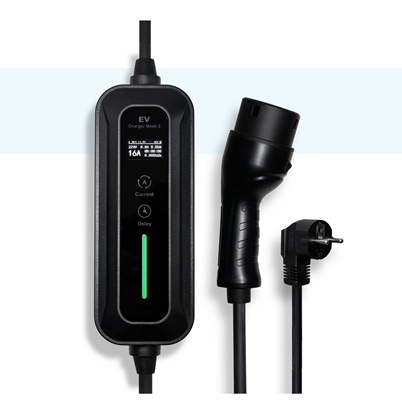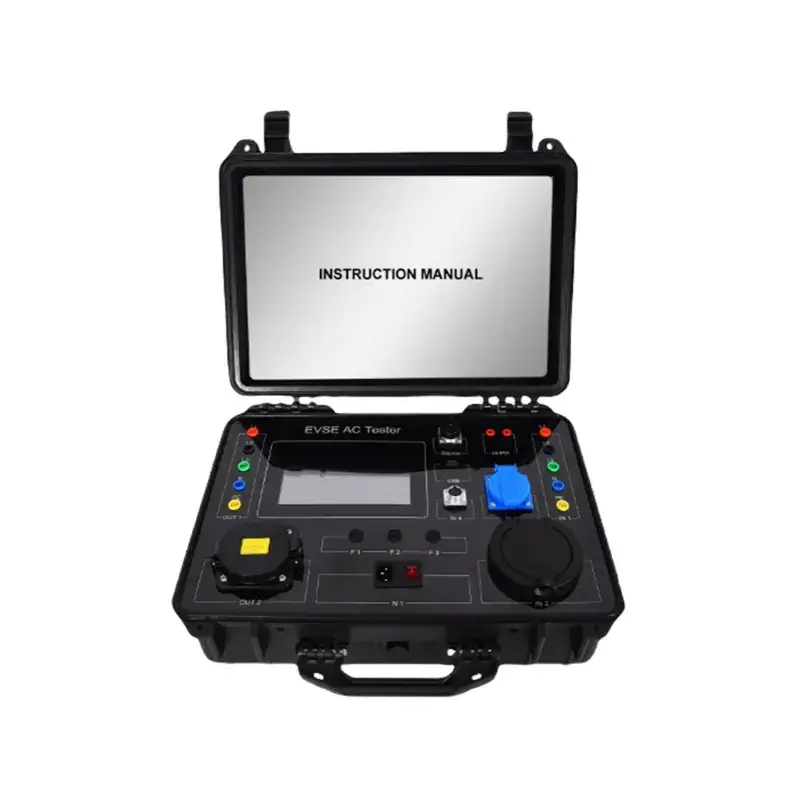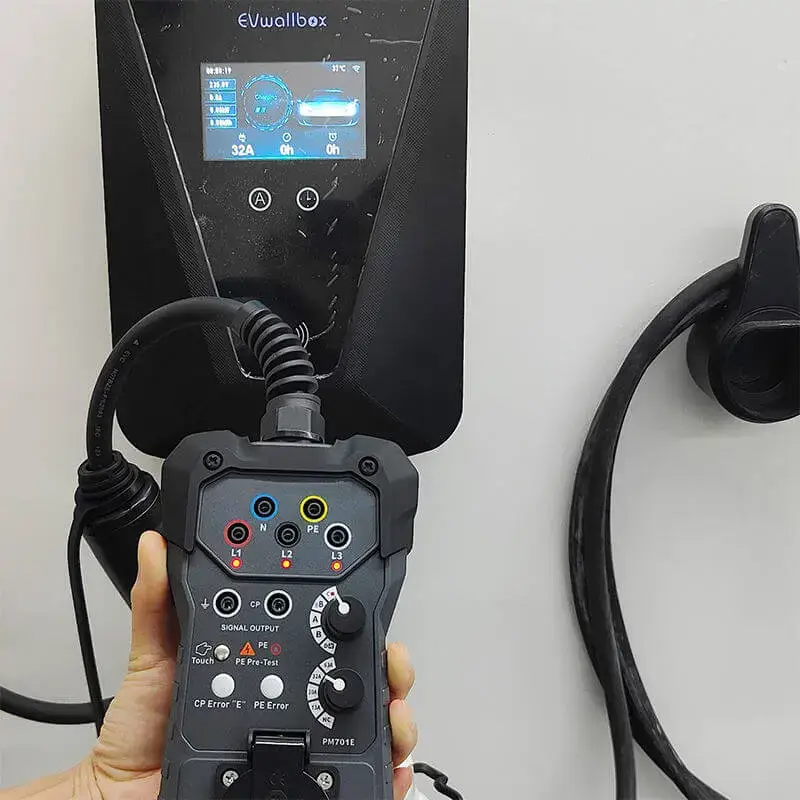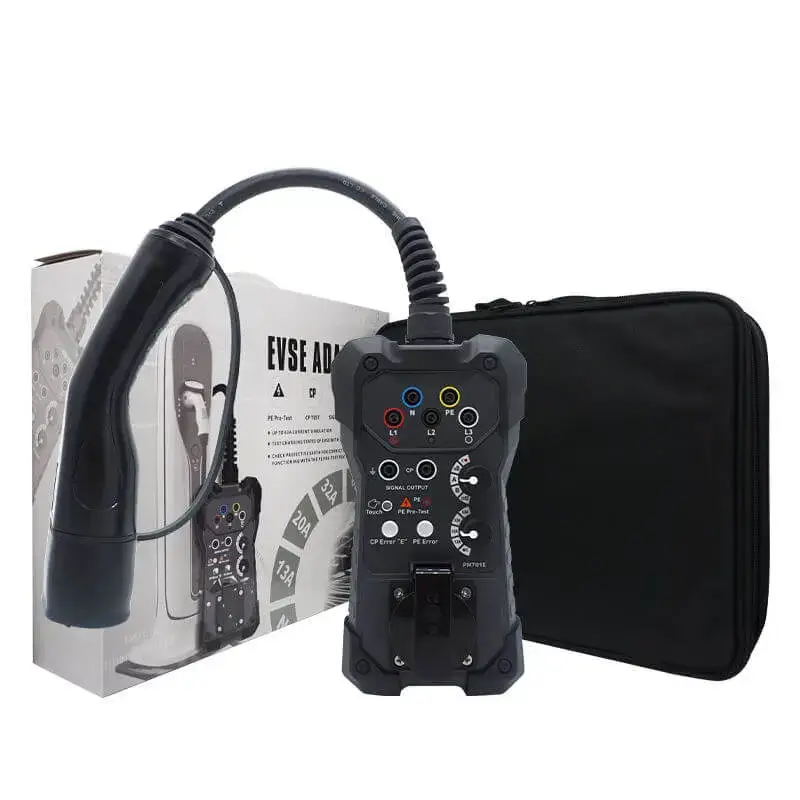Il 26 settembre 2024, i vigili del fuoco di San Francisco hanno riferito che l'incendio in un garage residenziale è scoppiato mentre la batteria di un veicolo elettrico era in carica all'interno. Per i rivenditori di una Caricabatterie portatile EVQuesta notizia è molto più di un titolo di giornale: ci ricorda che la sicurezza e la conformità non possono essere considerati un secondo fine. Anche se l'incendio è stato collegato alla batteria e non al caricabatterie, sottolinea lo stesso punto: qualsiasi dispositivo collegato alla ricarica dei veicoli elettrici può comportare dei rischi se è fabbricato male o se manca di una certificazione adeguata.
Pertanto, prima di aggiungere un caricabatterie portatile al proprio catalogo, i rivenditori devono verificarne la conformità normativa, la copertura della garanzia e i marchi di sicurezza, invece di concentrarsi esclusivamente sul prezzo. Questo articolo spiega esattamente come fare.

Comprendere i rischi della ricarica dei veicoli elettrici
L'adozione dei veicoli elettrici sta crescendo rapidamente, ma anche i problemi di sicurezza. I vigili del fuoco negli Stati Uniti e in Europa hanno segnalato incidenti nei garage e sulle strade durante la ricarica. La maggior parte di essi riguarda le batterie, ma evidenziano un punto fondamentale: ogni parte della catena di ricarica è importante, compreso il caricabatterie portatile EV.
Un pericolo importante è la fuga termica, in cui le batterie surriscaldate possono prendere fuoco. Caricabatterie difettosi, cablaggi inadeguati o dispositivi non conformi aumentano il rischio consentendo una tensione o una corrente instabile. Anche se rari, gli incidenti possono causare incendi, danni alla proprietà e controversie legali che coinvolgono produttori e rivenditori.
La conformità è un altro fattore critico. Negli Stati Uniti, i caricabatterie devono soddisfare gli standard UL e l'articolo 625 del NEC; in Europa, è necessario verificare la presenza dei marchi CE e la conformità allo standard IEC 61851. Ignorare queste normative può portare a richiami, multe o cause legali se i clienti riscontrano guasti.
In breve, l'approvvigionamento di un caricabatterie portatile EV non dipende solo dalla domanda del mercato, ma anche dalla garanzia che il prodotto sia progettato, testato e certificato correttamente per evitare rischi evitabili. In seguito, esamineremo la lista di controllo della conformità normativa che ogni rivenditore dovrebbe seguire.
Lista di controllo della conformità normativa per i rivenditori
Prima di tenere in stock un caricabatterie portatile per auto elettriche, i rivenditori devono verificare che soddisfi i requisiti normativi essenziali. La conformità non è solo burocrazia: protegge sia i clienti che l'azienda.
Certificazioni di sicurezza
Verificare la presenza di certificazioni riconosciute. Negli Stati Uniti, cercate le etichette con l'elenco UL che confermano la sicurezza elettrica. In Europa, il marchio CE e la conformità alla norma IEC 61851 sono fondamentali. Per un caricabatterie portatile per veicoli elettrici, questi marchi indicano che il produttore soddisfa gli standard di sicurezza internazionali.
Standard e codici elettrici
Assicurarsi che il caricatore sia conforme alle norme elettriche locali. Negli Stati Uniti, l'articolo 625 del NEC disciplina le apparecchiature di ricarica per veicoli elettrici. Anche un caricatore mobile per auto elettriche da viaggio o da esterno deve mantenere livelli di tensione e corrente sicuri per evitare surriscaldamenti o incendi. I dispositivi non conformi mettono a rischio clienti e rivenditori.
Etichettatura e istruzioni
L'etichettatura corretta è fondamentale. Il dispositivo e la confezione devono indicare chiaramente la tensione, la corrente e i limiti di utilizzo. I manuali devono descrivere l'uso sicuro, sia che si tratti di un caricabatterie portatile per i conducenti di veicoli elettrici in viaggio, sia che si tratti di un caricabatterie per uso domestico. Istruzioni mancanti o vaghe sono segnali di allarme.
Controllando le certificazioni, gli standard elettrici e l'etichettatura, i rivenditori possono evitare errori e responsabilità costose. Il passo successivo è la valutazione della copertura della garanzia, un altro fattore critico per la vendita sicura di un caricabatterie portatile EV.
Valutazione della copertura della garanzia e della responsabilità
Anche se un caricabatterie portatile per veicoli elettrici soddisfa gli standard normativi, i rivenditori devono considerare cosa succede se il dispositivo si guasta. La copertura della garanzia e le condizioni di responsabilità sono essenziali: proteggono sia i clienti che i venditori.
Durata e portata della garanzia
I produttori affidabili offrono almeno una garanzia di 12-24 mesi che copre i difetti dei materiali e della lavorazione. Garanzie più brevi possono indicare una riduzione dei costi o una limitata fiducia nella durata. Ad esempio, se un caricabatterie per auto elettriche si surriscalda o smette di funzionare durante il periodo di garanzia, il fornitore, e non il rivenditore, dovrebbe occuparsi della riparazione o della sostituzione.
Politiche di restituzione e sostituzione
La facilità di restituzione e di sostituzione è fondamentale. Le spese di rifornimento o di spedizione nascoste aumentano il rischio. Un sistema di assistenza al cliente garantisce che i rivenditori non perdano denaro o reputazione. Quando si valuta un caricabatterie portatile per EV, questi termini sono importanti quanto il prezzo.
In breve, la garanzia e la copertura della responsabilità non sono solo documenti cartacei, ma definiscono la ripartizione del rischio tra produttori e rivenditori. Condizioni rigorose rendono più sicuro lo stoccaggio di un caricabatterie portatile EV e creano fiducia nei clienti.

Consigli pratici per i rivenditori prima di rifornirsi di caricabatterie portatili EV
L'approvvigionamento di caricabatterie portatili EV non si limita al controllo delle certificazioni e delle garanzie. I rivenditori possono ridurre i rischi e rendere felici i clienti seguendo alcuni semplici passaggi.
Controllate i vostri fornitori
Scegliete produttori che abbiano certificazioni di sicurezza chiare, rapporti di prova e standard di qualità costanti. Avere questi documenti a portata di mano dimostra l'affidabilità del produttore e contribuisce a ridurre i rischi di responsabilità.
Iniziare in piccolo e testare prima
Prima di fare grandi ordini, provate un piccolo lotto. Verificate il funzionamento, le etichette, i manuali d'uso e le caratteristiche di sicurezza. Per una guida dettagliata sulla scelta di modelli sicuri e affidabili, vedere Come scegliere un caricatore portatile EV affidabile.
Formate il vostro team e aiutate i clienti a imparare
Assicuratevi che il personale sia a conoscenza dell'uso sicuro, dei limiti di tensione e dei dispositivi con cui i caricabatterie funzionano. Fate in modo che i clienti sappiano come maneggiarli correttamente, come conservarli e come creare buone abitudini di ricarica.
Mantenere una comunicazione chiara e offrire un buon supporto
Create modi semplici per consentire ai clienti di restituire gli articoli, ottenere sostituzioni o presentare richieste di garanzia. Un servizio rapido e aperto aiuta a proteggere la vostra reputazione e a creare fiducia.
Selezionando attentamente i fornitori, testando prima piccoli lotti, formando il vostro team e offrendo un solido supporto ai clienti, i rivenditori possono sentirsi sicuri nell'aggiungere caricabatterie portatili EV alla loro gamma, mantenendo bassi i rischi e rendendo i clienti soddisfatti.
Conclusione
La vendita di caricabatterie portatili EV è redditizia, ma comporta delle responsabilità. L'incendio del garage di San Francisco del 26 settembre 2024 dimostra che la sicurezza e la conformità non possono essere ignorate.
Concentratevi su tre elementi essenziali:
- Conformità - Verificare le certificazioni, gli standard e l'etichettatura.
- Garanzia - Garantite una forte protezione ai clienti e alla vostra azienda.
- Precauzioni pratiche - Esaminare i fornitori, testare piccoli lotti, formare il personale ed educare gli acquirenti.
Seguendo questi passaggi, i rivenditori possono ridurre al minimo i rischi, creare fiducia e aggiungere con fiducia i caricabatterie portatili EV al loro catalogo. La sicurezza prima di tutto, le scelte informate sempre.






